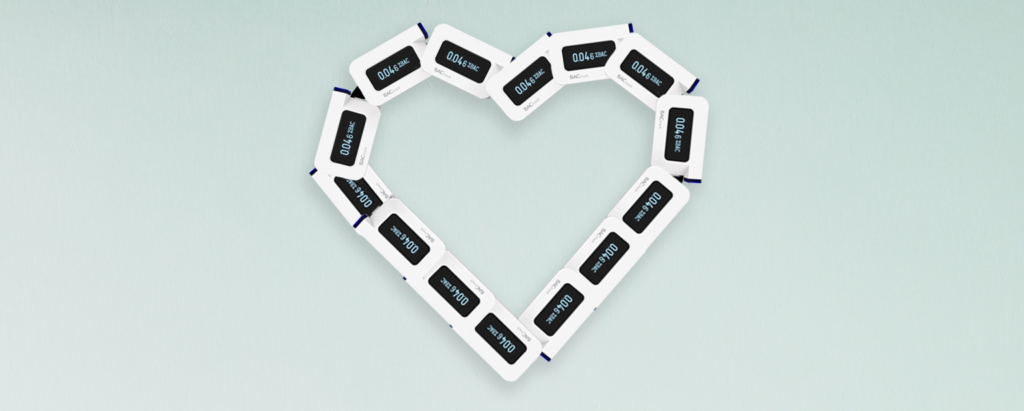
Reflections inspired by research findings on BAC monitors published by Christina Nehlin, PhD, Kristina Carlsson, BSc, and Caisa Oster, PhD in the Journal of Addiction Medicine, 2018: Patients’ Experiences of Using a Cellular Photo Digital Breathalyzer for Treatment Purposes.
For individuals recovering from using substances like alcohol, eHealth accountability tools like a BAC monitor can be an important part of their treatment. This kind of consent to accountability combined with clinical support can be a positive part of treatment.
For example, Nehlin et al (2018) found that BAC monitor users perceived it as a “convenient and useful tool that was supportive under the circumstances that it was used in a context that included personal contact with a caregiver; and the user felt more than just a minimum of motivation to reduce drinking.”1
Increased motivation is what a tool like this is all about, giving the individual another way to feel connected to their caregiver, deepening the therapeutic alliance and sense of partnership.
1. BAC Monitors are Convenient to Use
A BAC monitor in your pocket is always with you and can be administered almost anywhere.
In the study one participant noted: “this is considerably simpler than coming here [to the clinic].’’2
Remote monitoring tools like pocket BAC breathalyzers provide an opportunity for an individual to regularly check-in and demonstrate accountability to themselves and their clinician. In other words, like a speedometer can serve as a reminder to keep your speed under the posted limit, a BAC monitor can serve as an ongoing reminder to stick with your treatment plan.
Tools like a BAC monitor can serve as an ongoing reminder to stick with the treatment plan.
2. Not Always Easy to Hide
However, no solution is perfect. Some individuals found that trying to keep up with the regular checks while in public could sometimes be a challenge.
To give you an idea, one participant from the Nehlin et al (2018) study reported: “When I’m out driving a bus I don’t sit there and blow in front of the passengers.”3
If you can imagine yourself at work or play in everyday circumstances, you can imagine moments where pulling out a breathalyzer may not always be appropriate.
Clinicians can respond with empathy for these situations and can review each unique individual’s situation in context. Above all, times scheduled can be effective but still convenient for the individual. Careful conversation around these check-ins can be an opportunity to build trust and support with the individual.
Careful conversation around these check-ins can be an opportunity to build trust and support with the individual.
3. BAC Monitors Can Strengthen Self-Control
Individuals often know before they blow. Knowing that a BAC check is scheduled can increase the individual’s resolve when a temptation comes earlier in the day. As a result, that awareness may help them avoid use.4
An extra point of awareness like that can turn into a new kind of empowerment: a deeper knowledge of yourself and an awareness of your connection to others around you.
An extra point of awareness can turn into a new kind of empowerment.
4. Connection to Others
In the early releases of Vivi360 we have seen this happen. The individual in recovery is able to use their ongoing breathalyzer checks to prove to their friends and family that they are sticking to their plan.
The demonstrable proof that this enables is very effective and is a critical part of rebuilding trust.
The demonstrable proof that this enables is very effective and is a critical part of rebuilding trust.
5. Motivation was key to this kind of consent to accountability 5
Lasting recovery always starts with the individual. The individual has to have to a desire to change and must acknowledge that they need help.
When that desire is there, it can make monitoring tools more effective.
When that desire is there, it can make the use of monitoring tools more effective.
In conclusion, tools like BAC monitors can be a huge benefit to the person in treatment when used as part of a treatment plan administered by a recovery treatment professional. They facilitate trust and provide an important daily connection. That trust and connection can build a partnership between client and clinician that can help the individual overcome their addiction.
For More Information
Reach out and schedule a demo to learn more about the Vivi360 Recovery Solution and how it could help your treatment center harness technology like real-time BAC monitoring to generate insights that can transform your care.
ViviHealth exists to…
…transform recovery treatment through insights and technology to support sustainable and lasting recovery that saves and improves lives.
The Vivi 360 Recovery System is a comprehensive insight platform that combines real-time health monitoring devices, clinical insight dashboards, and personalized client care applications to make recovery treatment centers more effective.
Vivi360 delivers empirical clinical outcomes built on years of evidence-based scientific research from top universities and board-certified addictionologists.
- Nehlin, C., Carlsson, K., & Öster, C. (2018). Patients’ Experiences of Using a Cellular Photo Digital Breathalyzer for Treatment Purposes. Journal of Addiction Medicine, 12(2), 107. doi:10.1097/adm.0000000000000373
- Ibid., 109.
- Ibid.
- Ibid., 110.
- Ibid.
About the Author: Chris Lawless is the CEO and Co-Founder of ViviHealth.
